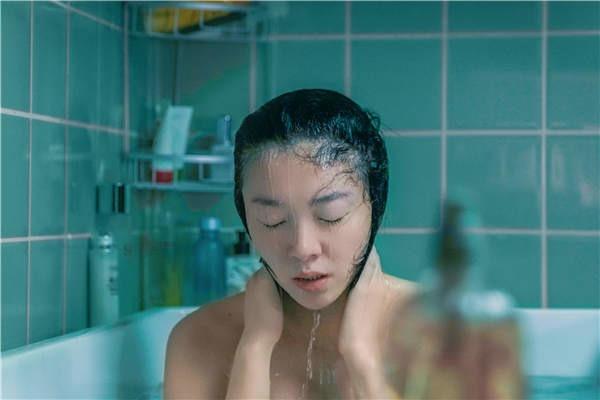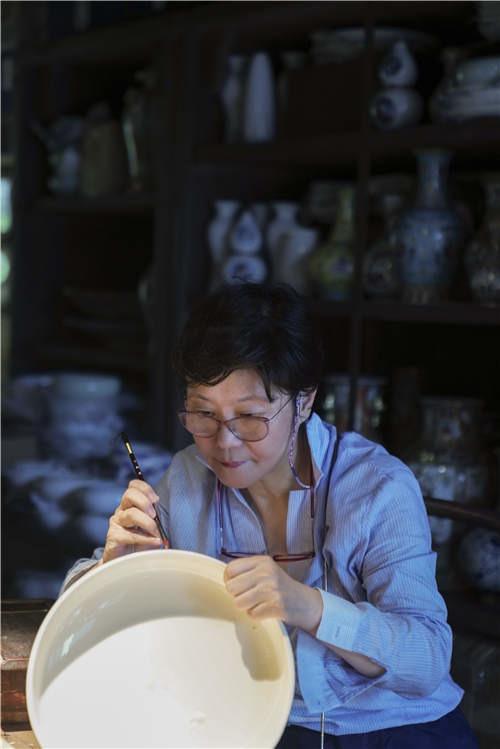 The miniseries Hear Her highlights challenges women face, using the format of eight stand-alone monologues, with actresses Qi Xi acting as a young woman obsessed with her looks. (PHOTO PROVIDED TO CHINA DAILY)
The miniseries Hear Her highlights challenges women face, using the format of eight stand-alone monologues, with actresses Qi Xi acting as a young woman obsessed with her looks. (PHOTO PROVIDED TO CHINA DAILY)
The scourge of gender inequality, such as women being paid less than men for the same work, or having their voices ignored, still plagues society. There is no doubt that women's social status has improved, albeit gradually, but many still face barriers and unwanted challenges as a direct result of their gender.
These cliches have limited women’s perceptions of their own preferences and pursuits. Women need to hear their own voices from their hearts.
Li Shaohong, director
A new production is now highlighting these challenges. Hear Her is China's first miniseries of its type and it uses a format of eight standalone monologues. It has made a massive impression online. Each episode stars a well-known actress, including the award-winning Yong Mei and the hugely popular Yang Mi.
Obtaining 8.4 points out of 10 on the popular review aggregator Douban, the show touches on some of the most common social issues, ranging from domestic violence to midlife crises and the objectification of females.
Producer Jin Na tells China Daily that the show's idea was first conceived in 2018, when she caught the occasional episode of the BBC's monologue series Snatches: Moments From Women's Lives.
ALSO READ: Breaking new ground
Inspired by the series from Britain, Jin then acquired the format license from the BBC to shoot a Chinese version, persuading actress-filmmaker Zhao Wei to take on the role of chief executive producer and one of the series' seven directors.
Delivering a monologue is a powerful way to directly display a person's inner pains and struggles, Jin says, adding that she believes the show can help women's voices get heard by more people.
"Women play various roles in our society. They are daughters, wives and mothers, so women's problems also concern men. If the pains and struggles of women can be understood by men, I believe the world will become more open and tolerant," says Jin, who is also a scriptwriter. She won a Silver Bear for Best Script for director Wang Quan'an's film Apart Together at the Berlin International Film Festival in 2010.
Zhao directs two of the eight tales, respectively starring Qi Xi as a young woman who struggles with the anxiety of her appearance and Yang Mi portraying a robot featuring a supposedly perfect female shape.
While the latter aims to explore the theme of female objectification, the former relates some of Zhao's confusion in her early career.
After shooting to fame in the 1998 hit costume drama My Fair Princess, Zhao-then 22-has achieved incredible popularity, captivating numerous fans with her looks and big eyes. However, she surprisingly harbored doubts about her appearance.
 The miniseries Hear Her highlights challenges women face, using the format of eight stand-alone monologues, with actresses Qi Xi acting as a young woman obsessed with her looks. (PHOTO / CHINA DAILY)
The miniseries Hear Her highlights challenges women face, using the format of eight stand-alone monologues, with actresses Qi Xi acting as a young woman obsessed with her looks. (PHOTO / CHINA DAILY)
Jin recalls: "Zhao previously asked: 'Do you think that my eyes are too big and make me look like a cartoon character?' For quite a long time in her early 20s, she was worried that her appearance would see her being typecast and reduce her chances of receiving quality scripts."
Zhao's first episode recounts a woman's almost morbid pursuit of "prettiness" whereby she spends nearly three hours every day on the application of heavy makeup while considering the benefits of cosmetic surgery.
"Many Chinese women pursue the appearance of a slender, fair-skinned, youngster. But why should women follow these 'criteria'? We wish women could be more confident in their own looks and brave enough to challenge biased aesthetics," says Jin.
Midlife crises are another major topic discussed in one episode directed by poet-turned-director Yin Lichuan. Yong Mei, a Berlin film festival Golden Bear-winning actress, translates the stress and trauma of a middle-aged woman who sacrifices her career to support the family as a full-time housewife. Despite living a humble and obedient life, she is abruptly notified that her husband wants a divorce and is then separated from her daughter.
Jin says the tale attempts to raise public awareness about the underappreciated dedication of housewives, many of whom are highly educated.
The episode, shot in Beijing last summer, used a special method to create smog to portray a "distressed" atmosphere. "We purchased a big bag of coffee beans and recruited a man to stir-fry the beans. All of us breathed in so much coffee that we stayed up the whole night filming," recalls Jin.
Unlike the original British show, in which each episode employs the same setting, similar to a stage show backdrop, Hear Her adopts a comparatively more complex filming technique, including diversifying locations for each episode to give the content a more movie-like quality, says Jin.
Finding their voices
Of all the eight tales, director Li Shaohong's Her Legend is hailed as the closest to a feature-length film. The story exemplifies an extreme case of gender bias that once prevailed in a heavily patriarchal society: Many craftsmen kept their techniques a secret, and only divulged them to male offspring.
 The miniseries Hear Her highlights challenges women face, using the format of eight stand-alone monologues, with actresses Xi Meijuan starring as a senior craftswoman. (PHOTO / CHINA DAILY)
The miniseries Hear Her highlights challenges women face, using the format of eight stand-alone monologues, with actresses Xi Meijuan starring as a senior craftswoman. (PHOTO / CHINA DAILY)
Starring veteran actress Xi Meijuan as the only heir to a prestigious porcelain-glazing family in South China's Guangdong province, the legendary tale looks back on the life of the sexagenarian craftswoman, who recites her soliloquy in the late 1980s. She was raised as a boy and was regarded as a "man" in society. She develops a crush on a young apprentice, but is forced to marry another woman who has her own reasons for playing along with the charade.
Speaking of how both ancient and near-modern China unfairly viewed women's status as inferior to men, Li says she wanted to examine their suffering through a typical tale that some of the audience "may have heard from their grandparents".
A renowned director known for female-driven movies and TV dramas like Blush (1995) and Palace of Desire (1998), Li was shooting the TV drama Unbending Will, about China's poverty alleviation effort, in East China's Fujian province, when she received the call from producer-director Zhao.
Describing the script sent by Zhao as an "engrossing and challenging task", Li believes a monologue can create a more convincing effect. "It enables the audience to feel that the character is confiding in them, speaking about her innermost secrets in private, which makes the scene more touching and impressive," she adds.
With meticulous preparation, Li discussed details of the script with actress Xi, purchasing more than 2,000 porcelain items to decorate the set representing a glazing studio and inviting a master craftsman to teach Xi glazing skills.
 Li Shaohong is one of the seven directors of the miniseries Hear Her. To better direct Her Legend, a tale which features the life of a veteran craftswoman, she tries her hand at porcelain-glazing before instructing the actress. (PHOTO / CHINA DAILY)
Li Shaohong is one of the seven directors of the miniseries Hear Her. To better direct Her Legend, a tale which features the life of a veteran craftswoman, she tries her hand at porcelain-glazing before instructing the actress. (PHOTO / CHINA DAILY)
Color is used as a pivotal element to offer clues about the life of the character. Juxtaposed against the bright and splendid colors of the porcelain plates painted with vivid flowers or birds, the narrow corner where Xi's character sits to recall her miserable tale has a much bleaker palette.
Explaining the metaphorical use of color Li says the contrast in the environment is like the character's life.
"She has dedicated the most colorful part of her life to maintain the family reputation, but isolated her own yearning to live like a real woman in the darkness," says Li.
READ MORE: Gender roles in focus at photo exhibition
Despite the story being set half a century ago, when the protagonist performing the monologue is already in her 60s, director Li says the tale has an enlightening meaning for the modern audience.
"Societal norms have attached many labels to women, requiring them to be good wives or well-behaved daughters-even today. These cliches have limited women's perceptions of their own preferences and pursuits. Women need to hear their own voices from their hearts," says Li.
The show is now available on the Tencent streaming platform, and is scheduled to appear on the BBC's Asian digital platforms in March, according to producer Jin.


